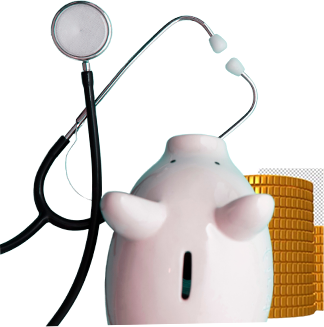PERSONALIZED DIET PLAN FROM
Dietician for Anxiety Disorders

Contact Us
One of the most prevalent types of mental illness is anxiety disorder, which is experienced by millions of individuals throughout the globe. While treating anxiety disorders, psychotherapy, and medications are highly recommended; however, diet is also an important factor affecting one’s mental health. At Qua Nutrition, we can help clients develop nutrition plans that will work for their anxiety abilities due to the great staff who are specialized dieticians in the area. With the help of our nutritionists, you get tailored solutions to support your mental health journey. Contact us to get support from our dietician for anxiety disorders.

Best Diet for Anxiety
Following a proper diet is important for treating anxiety since it has an impact on the brain and emotion regulation. How you eat daily can be quite useful if you include the key nutrients that help lower anxiety levels. Some of these nutrients include:
- Omega-3 Fatty Acids: Fatty fish, particularly salmon and flaxseed, contain omega-3 fatty acids, which have been proven to enhance the proper functioning of the brain while reducing inflammation in the body, thus making it easier to fight off anxiety.
- Magnesium: Magnesium is a mineral that empowers neurotransmitters and performs other key functions. Some magnesium foods, such as spinach, avocados, and some dark chocolate, are beneficial for decreasing anxiety by stabilizing moods.
- Probiotics: Foods that improve the functioning of the gut, such as yogurt and fermented foods, affect both physical and mental health. Since the gut is directly connected to the brain, anxiety can also be reduced through a healthy gut.
- Vitamin D: Regarded as the “sunshine vitamin,” Vitamin D also works in the body to improve mood. Low levels of Vitamin D have been associated with increased anxiety and depression states.
- B Vitamins: Energy production as well as the brain structure depends on these nutrients to be present in sufficient amounts. High-in-B vitamin foods such as whole grain products, eggs, and some leafy green types of vegetables can enhance neurotransmitter production that fights anxiety sensations.
How a Dietician Can Help with Anxiety?
When it comes to a dietician for anxiety disorders, they can provide tailored dietary advice that supports overall well-being and helps manage symptoms. Nutrition is one of the issues that is very deep and interlinked with anxiety. At Qua Nutrition, our dieticians and nutritionists understand the intricate link between nutrition and anxiety. They can:
Identify Nutritional Deficiencies: Through a comprehensive assessment, dieticians can determine if your anxiety might be worsened by nutritional imbalances, such as low levels of magnesium, Vitamin D, or Omega-3s
Create a Customized Diet Plan: Our dietitians help you prepare the portions that are right for you, ensuring that the foods you consume are appropriate for the nourishment of the brain and also promote good mood factors.
Provide Ongoing Support: The process of dealing with anxiety does not end in one sitting; it is a process that entails many modifications. Our dieticians at Qua Nutrition provide dietary follow-ups and support to modify your diet and nutrition as needed, ensuring long-term mental health benefits.

Lifestyle Changes to Support Anxiety Management
Mindful Eating: Practicing mindful eating helps mitigate anxiety by shifting and training how one perceives their nourishment patterns.
Regular Exercise: Exercise is associated with enhanced mood as a result of an increase in both serotonin and endorphins, which in turn lowers anxiety levels drastically.
Adequate Sleep: Poor sleep is both a symptom and a cause of anxiety. A combination of magnesium and tryptophan in the diet can enhance sleep quality, breaking the cycle of anxiety and sleeplessness.
Hydration: Anxiety symptoms can worsen with dehydration. Enough water consumption throughout the day is necessary for mental fog and mood swings.
Stress Management Techniques: Incorporating stress management programs such as yoga, meditation, and deep breathing exercises will help you manage anxiety.
Foods That Worsen Anxiety
Certain foods can worsen anxiety symptoms by triggering stress responses in the body. These include:
Caffeine: The overconsumption of coffee, as well as caffeinated drinks, can lead to an elevated pulse rate accompanied by nervousness, which tends to worsen anxiety.
Sugar: Sugary snacks and drinks, when consumed, can heighten the blood sugar level quite rapidly, putting an individual in an anxious state.
Processed Foods: Foods high in trans fats, additives, and preservatives can affect gut health and inflammation, contributing to anxiety.
Alcohol: While alcohol might initially provide immediate relaxation, the inverse is true: it can disturb the sleep cycle as well as cause dehydration, resulting in a feeling of anxiety the next day.
Refined Carbohydrates: These can cause rapid blood sugar spikes, followed by rapidly falling blood sugar levels, leading to aggravation of anxiety symptoms in a patient.


Why consulting a dietician for anxiety is essential?
Consulting a dietician for anxiety disorder is essential because nutrition plays a significant role in mental health, and a balanced diet can help alleviate symptoms and improve mood. A dietician can provide personalized dietary strategies that support brain function and emotional well-being, addressing individual needs and preferences.
Assess Your Unique Needs: Each individual has different nutritional requirements and anxiety triggers. A dietician can assess your signs, genetics, and lifestyle and propose a precise treatment plan.
Provide Long-term Solutions: Anxiety is often a chronic condition, and managing it requires sustainable dietary changes. Dieticians create long-term strategies rather than quick fixes, ensuring lasting relief from symptoms.
Support Complementary Treatments: Dieticians can collaborate with therapists and physicians to ensure make sure that nutrition is part of a set of techniques for anxiety and would improve outcomes. Our medical nutrition therapy is to control overall well-being.
Monitor and Adjust: A professional dietician will regularly monitor your progress, making adjustments as needed based on your response to the diet.
Why Qua Nutrition Clinic is the Best Choice for a Dietician for Anxiety?
Qua Nutrition Clinic is an excellent choice for a dietician for anxiety due to its holistic approach to mental health and nutrition. Their experienced dieticians specialize in creating personalized meal plans that focus on nutrient-rich foods to support brain health and reduce anxiety symptoms. Qua Nutrition stands out as the leading choice for managing anxiety through diet for several reasons:
Experienced Dieticians: Most of our experts understand their way around mental health issues such as anxiety. Our professionals comprehend how food is utilized by the brain and create individualized strategies that are suitable to your unique concerns.
Genetic Testing: Qua Nutrition incorporates advanced genetic nutrition testing to ensure that your diet plan is aligned with your genetic predispositions, making it one of the most personalized approaches available.
Ongoing Support: Our specialized nutritionists for anxiety disorder follow up and make the necessary changes in your plan to strengthen your mind and prevent a relapse in the future.
Holistic Approach: At Qua, we like to approach the problem from all angles and include diet as well as lifestyle changes that help cope with anxiety.
Proven Results: Qua Nutrition achieves sustainable results, and this is something that more than 25000 people, including athletes and celebrity dieticians, can vouch for.
Choose QUA Nutrition to manage anxiety disorder with proper nutrition and diet plan. Our expert dieticians for anxiety disorders understand the connection between food and mental well-being, we offer customized diet plans for anxiety disorders that can help reduce anxiety symptoms and improve overall mental health.
Contact us now to get help from experts on your journey!

FAQs
Q: Can a dietician help with anxiety?
A: Yes, nutritional deficiencies that may be linked to depression and anxiety can be detected by our nutritionists, and they can create a safe plan to help improve mental health.
Q: What foods should I avoid if I have anxiety?
A: Anxiety symptoms can be aggravated by caffeine, sugar, processed foods, alcohol, and refined carbohydrates.
Q: How long does it take to see results from dietary changes for anxiety?
A: Results vary, however, noticeable changes may be seen after following tailored diets for a couple of weeks.
Q: Is genetic testing necessary for anxiety management?
A: While not mandatory, it can provide valuable information about your body’s biochemical pathways and formulate a diet plan accordingly.
Q: Does Qua Nutrition offer virtual consultations?
A: Yes, Qua Nutrition has in-person and online consultations, making it easier to seek professional advice.


